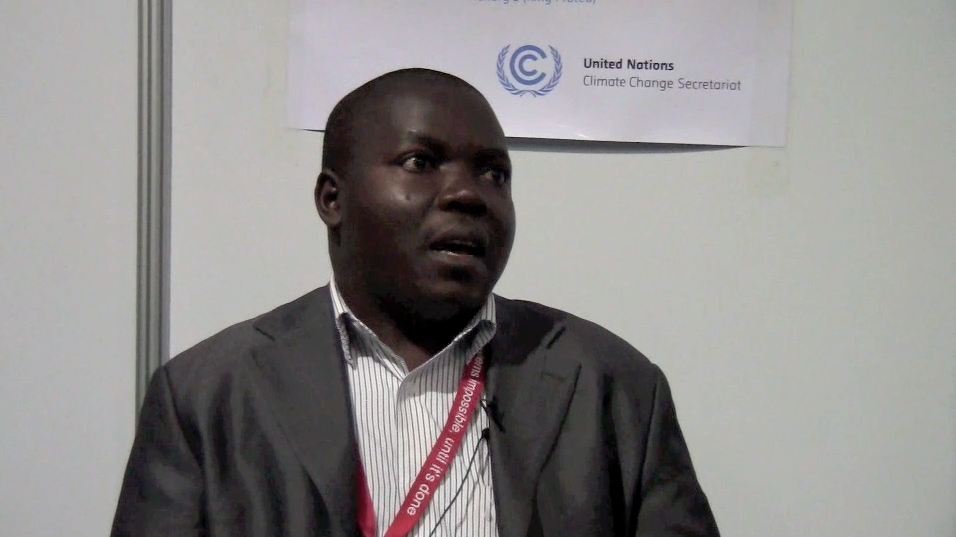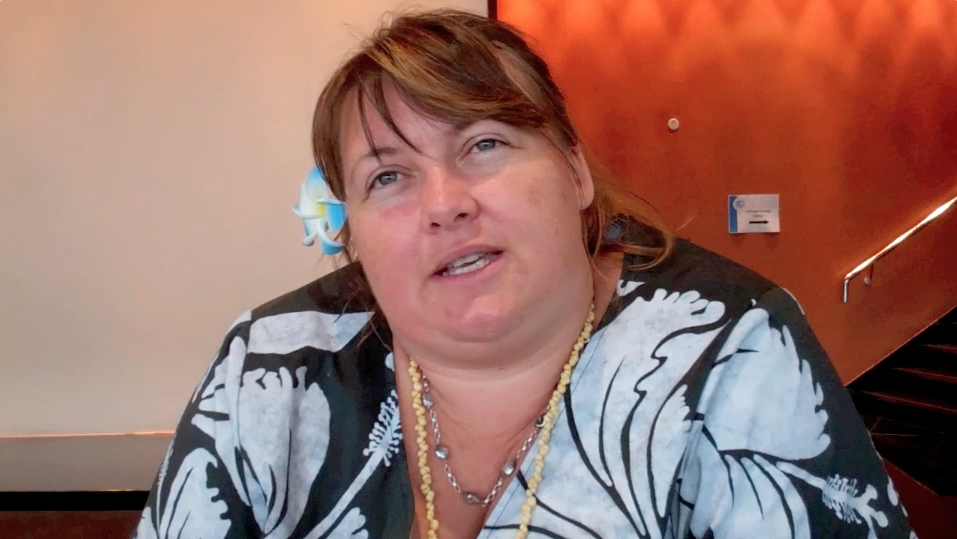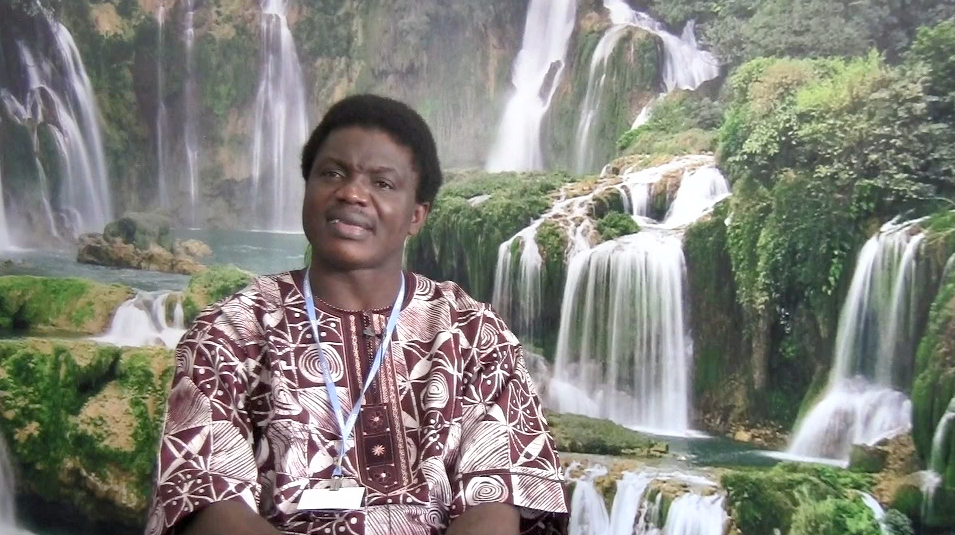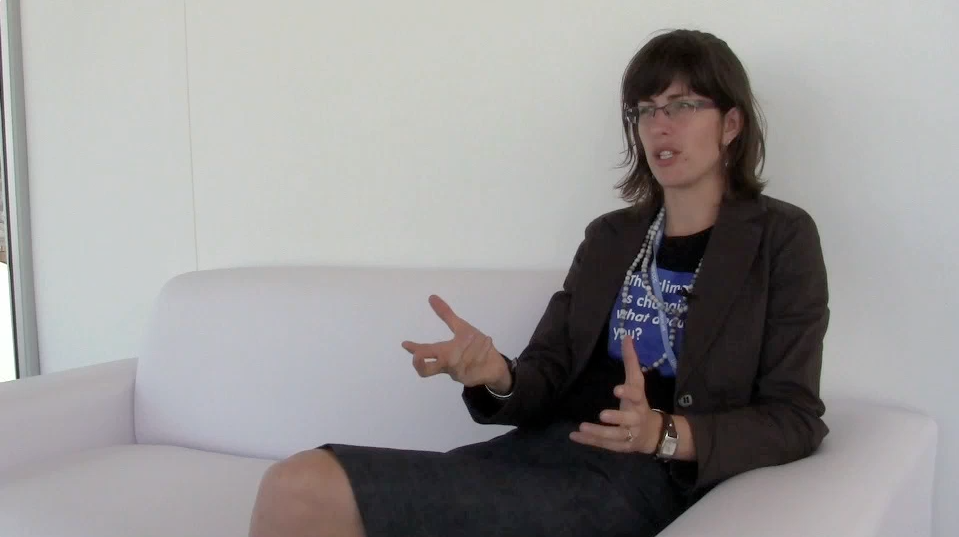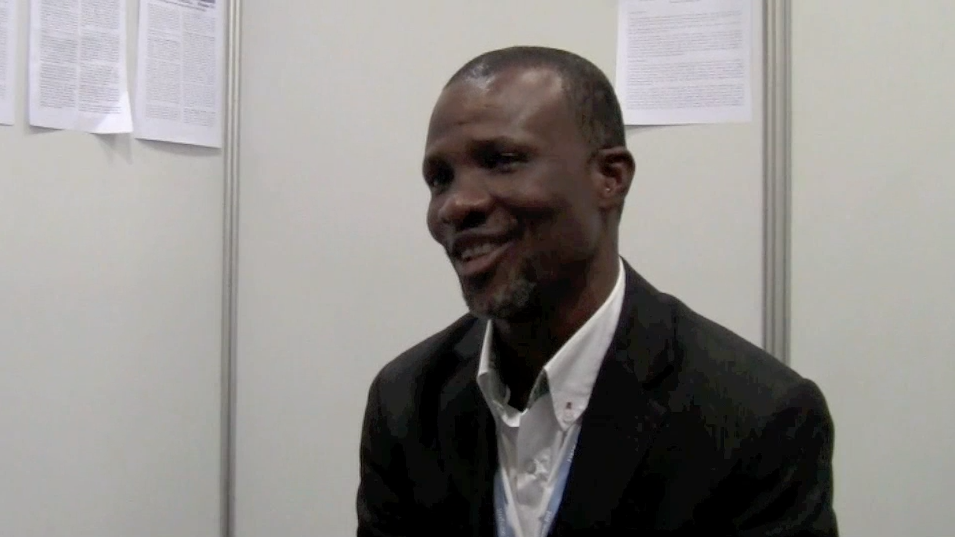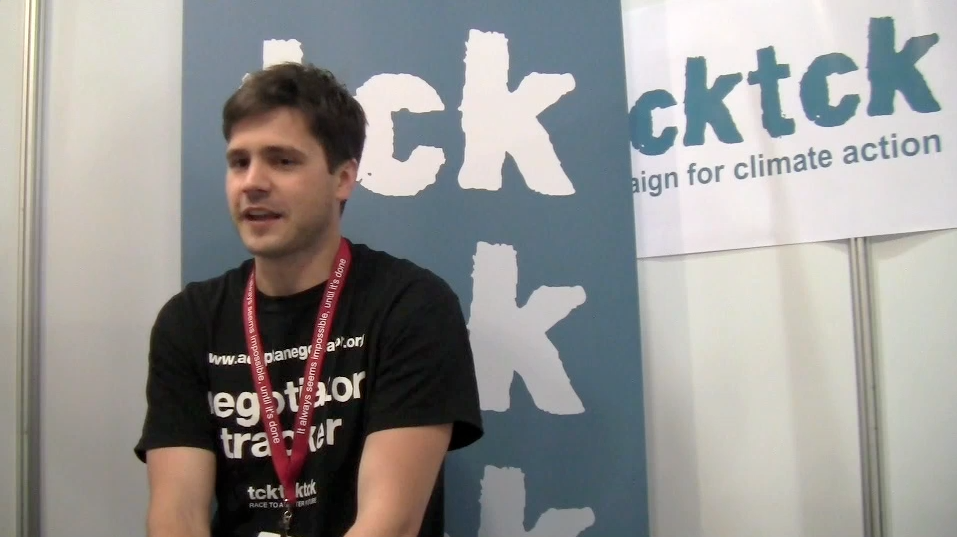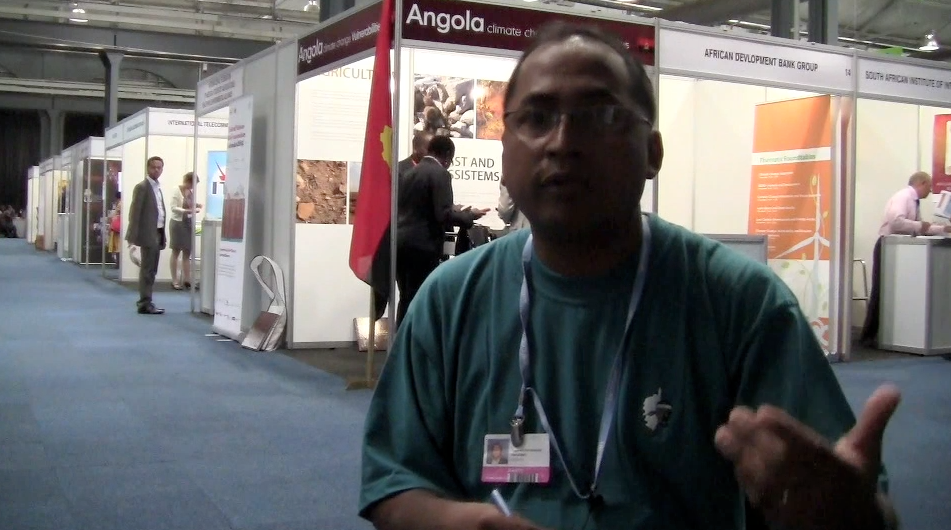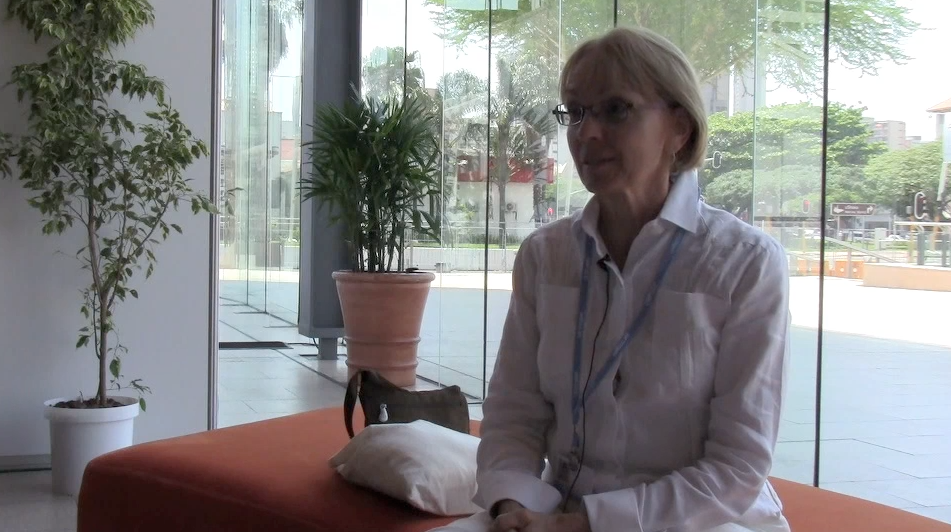Interviewed by Emily Bowie on December 9, 2012, COP 17, Durban, South Africa
Category: Vulnerability
Interviewed by Claire Tighe on December 9, 2011, COP 17, Durban, South Africa
Interviewed by Emily Bowie on December 9, 2012, COP 17, Durban, South Africa
Mayor Ayodele Adebowale Adewale of Lagos, Nigeria discusses Nigeria’s position within the negotiations and a multitude of sustainable initiatives occurring in Lagos, and calls for developed countries to help developing countries adapt and mitigate for the good of the entire planet.
Interviewed by Elena Capaldi and Anna McGinn on December 5, 2011, COP 17, Durban, South Africa
Anna Taylor of the African Center for Cities and the Stockholm Environment Institute discusses South Africa’s position as they move forward with sustainable development after COP 17. She notes poverty and economic inequality as the biggest obstacle for South Africa’s development. Coal as the primary source of energy is also a huge issue as the fuel is one of the dirtiest forms of energy and this will need to change as the country develops. Taylor also notes that the country has rapidly transitioned into a democracy and is still working to make that a reality.
Interviewed by Emily Bowie, Elena Capaldi and Maggie Rees on December 5, 2011, COP 17, Durban, South Africa
Ms. Anna Taylor of the African Center for Cities and the Stockholm Environment Institute discusses her work through both institutions looking at vulnerability and adaptation initiatives. She explains how she is promoting their research, making connections and learning more about climate change. She then explains her hopes for the outcome of the COP and her belief in the need to lead by example. She calls for an end in the negotiations standoff.
Interviewed by Emily Bowie, Elena Capaldi and Maggie Rees on December 5, 2011, COP 17, Durban, South Africa
Mr. Tetteh Hormeku, Programme Officer for the Third World Network’s Africa Secretariat, discusses the Africa Group and their hopes for the negotiations. These hopes include a second commitment priod for the Kyoto Protocol and greater developed country responsibility. He explains the reasons that African countries have decided to work together to push their agendas these reasons include, among others, ecosystem vulnerability as well as economic vulnerability.
Interviewed by Anna McGinn on December 5, 2011, COP 17, Durban, South Africa
Josh Weise, a United States youth and Project Director of the “Adopt a Negotiator” project, calls to USA youth not to be discouraged by the lack of activity of their government on this front and to instead, mobilize at the local and state levels. He asks them not to lose sight of the bigger vision of national change, saying this will come out of the grassroots mobilization. He asks youth to make sure their efforts are adding to real change on the ground.
Interviewed by Danielle Thompson on December 2, 2011, COP 17, Durban, South Africa
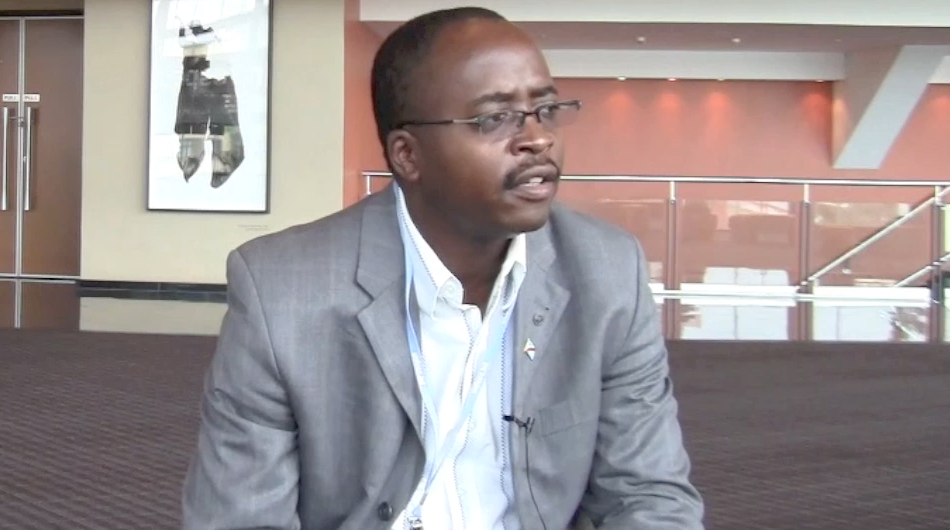
Jean-Marie Kileshye Onema on the Democratic Republic of Congo’s position in the climate negotiations
Mr. Jean-Marie Kileshye Onema, Democratic Republic of Congo Negotiator and Research Coordinator for the Southern Africa Development Community, discusses what climate change means for the Democratic Republic of Congo, the importance of a second period of the Kyoto Protocol for the DR Congo and what other countries agree with that importance.
Interviewed by Christine Burns on December 1, 2011, COP 17, Durban, South Africa
Dr. Saleemul Huq, Senior Fellow at the International Institute for Environment and Development Climate Change Group, explains the role of vulnerable countries in the negotiations under three main groups: AOSIS, LDCs and the African Group. He continues to explain what these countries should aspire to do in the face of no binding agreement.
Interviewed by Esther Babson, Anna McGinn, Maggie Rees and Claire Tighe on November 30, 2011, COP 17, Durban, South Africa
Mr. Tiana Ramahaleo from the Madagascar delegation and World Wildlife Fund discusses Madagascar’s alarming vulnerabilities to climate change, both in biodiversity and livelihoods. He then describes the critical issues that the delegation from Madagascar is following at COP 17.
Interviewed by Anna McGinn on November 29, 2011, COP 17, Durban, South Africa
Dr. Kristie Ebi, Executive Director of the Technical Support Unit Group II under Working Group II of the International Panel of Climate Change, discusses the recent release of a report, “Managing the Risks of Extreme Events and Disasters to Advance Climate Change.” She discusses the history and significance of the report, scientific consensus and how the report may impact policy decisions made at the conference.
Interviewed by Timothy Damon on November 28, 2011, COP 17, Durban, South Africa
